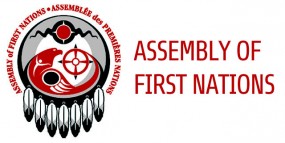 The Assembly of First Nations (AFN) developed out of the National Indian Brotherhood (NIB) which was established in 1968. The NIB was established by the status and treaty aboriginal groups in Canada as a means of creating a unified organization to confront the Canadian government regarding injustices committed against aboriginals.
The Assembly of First Nations (AFN) developed out of the National Indian Brotherhood (NIB) which was established in 1968. The NIB was established by the status and treaty aboriginal groups in Canada as a means of creating a unified organization to confront the Canadian government regarding injustices committed against aboriginals.
From 1969 to the present the National Indian Brotherhood has became a lobby group for aboriginal rights in Canada under the leadership of individuals such as George Manuel, Walter Dieter, Noel Starblanket, Delbert Riley, Dr. David Ahenakew, Georges Erasmus, Ovide Mercredi, Phil Fontaine, Matthew Coon Come.
In 1982 the NIB made the transition into the Assembly of First Nations (AFN). The AFN was established as an 'Organization of First Nations Government Leaders.' The AFN became the secretariat, or administrative body, to the newly formed Assembly of First Nations. With the change in structure, First Nation government leaders were able to directly formulate and administer the policies of the Assembly of First Nations. In the 1980s and 1990s the AFN was actively involved with Aboriginal rights, including areas such as: he Meech Lake Accord of 1987, the Charolettown Accord of 1992, and the Free Trade deal with the United States.